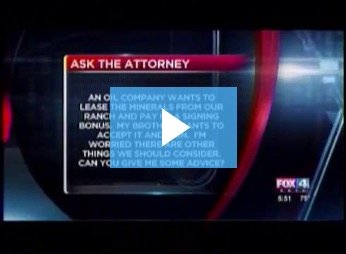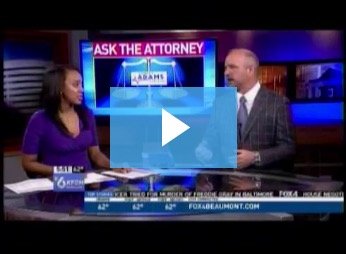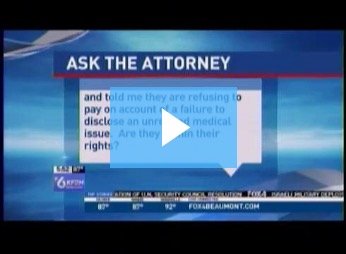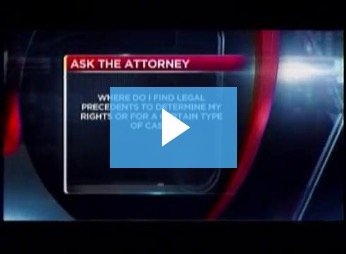How to Prove Traumatic Brain Injury (TBI) in a Personal Injury Case

Traumatic brain injury (TBI) is among the most severe and life-altering injuries a person can sustain. If you or a loved one has suffered a TBI due to another party’s negligence, that party is liable for medical expenses, loss of income, pain and suffering, loss in quality of life, and more, including the constellation of symptoms a TBI can cause, generally referred to as Post-Concussive Syndrome. Holding them liable, however, requires proving the nature of and extent of the injury, and traumatic brain injuries can be particularly challenging to prove, as their effects are not always visible on objective testing such as an MRI, and symptoms may evolve over time. Read on as we discuss some key elements in proving a TBI case in Texas, including the medical and legal steps involved, the evidence needed, and common challenges. For help holding a negligent party accountable in Beaumont, Southeast Texas or statewide, contact Gilbert Adams Law Offices to speak with an experienced and dedicated Texas personal injury lawyer.
Understanding Traumatic Brain Injury in Personal Injury Cases
A TBI occurs when a person suffers a blow, jolt, or penetrating injury to the head, which disrupts normal brain function. In personal injury cases, traumatic brain injuries often stem from:
- Car wrecks
- Slip and falls
- Workplace incidents
- Sports injuries
- Assaults
The impact of a TBI can range from mild (such as concussions) to severe (resulting in long-term disability). Symptoms of TBI may include vision disturbance, loss of consciousness or altered mental state, memory loss, mood swings, cognitive impairments, headaches, light sensitivity, noise sensitivity, dizziness, nausea, fatigue and other symptoms. For those who experience symptoms of a TBI after a car crash or other incident, obtaining proper medical evaluation is critical, not only for their health but also for their legal claim.
Key Elements in Proving Traumatic Brain Injury
1. Immediate and Comprehensive Medical Evaluation
One of the first steps in proving a TBI is undergoing a thorough medical evaluation. Even if symptoms appear mild initially, it is crucial to seek medical attention after an accident. The brain continues to swell after the initial trauma. Texas courts look closely at the documented medical symptoms and history of the injury or accident. By seeing a medical professional immediately, you establish a clear timeline of the injury and connect it to the wreck or traumatic event.
A TBI diagnosis often requires multiple assessments, including:
- Neurological exams to evaluate brain function.
- Neuroimaging tests such as MRIs and PET scans, which can show brain injuries that are not visible to the naked eye.
- Neuropsychological assessments to evaluate cognitive functions like memory, attention, problem-solving abilities and other problems with function.
These tests help establish a medical basis for the injury as well as the extent of brain injury and how it affects your activities of daily living, which is vital for proving the nature and extent of the TBI.
2. Gathering Expert Medical Testimony
In TBI cases, expert witnesses can play a crucial role in explaining the nature and severity of the injury to the Judge and Jury. Medical professionals such as neurologists, neuropsychologists, and other brain injury specialists can provide testimony regarding the specifics of the injury, the symptoms, and the anticipated long-term effects. Their testimony can establish a direct link between the accident and the brain injury, reinforcing the validity of the claim.
In addition to medical experts, a vocational rehabilitation specialist may be needed to explain how the TBI has impacted the injured person’s ability to work and earn income. When TBI symptoms affect someone’s career or daily activities, experts who can clarify this impact can strengthen the case for damages related to lost wages or diminished earning potential.
3. Documenting Symptoms and Their Impact on Daily Life
Because TBI symptoms are not always visible and can fluctuate, documenting their effects on daily life is essential. This documentation can include:
- Personal journals or diaries tracking mood changes, memory issues, fatigue, and other symptoms.
- Statements from family, friends, or colleagues who can attest to behavioral or cognitive changes they have observed.
- Medical records from ongoing treatments or rehabilitation programs.
Evidence of how the injury affects daily activities and relationships provides a compelling picture of the real-life impact of a TBI, helping jurors or insurance adjusters understand the magnitude of the injury.
4. Showing Economic and Non-Economic Damages
In a Texas personal injury case, TBI victims may seek compensation for both economic and non-economic damages. Economic damages cover financial losses like medical bills, rehabilitation costs, and lost wages, while non-economic damages address intangible impacts, such as pain and suffering, loss of enjoyment of life, and emotional distress. You are entitled to recover not only past damages but also those damages that will continue into the future, long after the resolution of your personal injury claim.
Collecting bills, receipts, and pay stubs can help substantiate economic damages. For non-economic damages, testimony from family members, friends, and mental health professionals can be instrumental in proving how the injury has altered the victim’s quality of life.
Challenges in Proving TBI in a Personal Injury Case
1. Delayed Onset of Symptoms
Unlike other injuries that may be immediately apparent or even visible, TBI symptoms can take days or even weeks to manifest. This delay is often used by the insurance company to create doubt about the injury’s connection to the accident, particularly if there is a gap between the incident and when symptoms were reported. A prompt medical evaluation can help mitigate this issue, but it remains a common challenge in TBI cases.
2. Skepticism About “Invisible Injuries”
TBIs often fall into the category of “invisible injuries,” which typically do not show up on traditional imaging tests and are not as visually apparent as broken bones or lacerations. This invisibility can lead to skepticism from insurance adjusters, defense attorneys, or even juries. Comprehensive testing, detailed medical records, and credible expert testimony are essential to overcoming this skepticism.
3. Proving Causation
In personal injury cases, proving causation is essential—that is, showing that the incident directly caused the brain injury. Insurance companies may argue that the TBI resulted from a pre-existing condition or unrelated incident. To combat these defenses, legal teams often rely on medical doctors and their records that establish a baseline of the client’s health before the injury-causing event, as well as expert opinions linking the injury directly to the incident in question.
Working With a Texas Personal Injury Attorney on TBI Cases
Proving a TBI can be a complicated and lengthy process. There is no room for on-the-job learning with these types of injuries. By working with an experienced personal injury attorney who has handled and understands the complexities of TBI cases, victims and their families increase their chances of obtaining fair compensation. At Gilbert Adams Law Offices, our attorneys have extensive experience handling serious injury cases in Beaumont, Southeast Texas, and statewide.
We can help gather the evidence needed to build a strong case, coordinate with medical experts to substantiate the injury, and advocate for full compensation for both economic and non-economic damages. If you or a loved one has suffered a traumatic brain injury due to someone else’s fault, reach out to Gilbert Adams Law Offices to discuss your case and learn how we can help you navigate the legal process to successfully establish the extent and duration of the TBI injury to recover the compensation you deserve for these injuries.
Contact Gilbert Adams Law Offices in Beaumont for Help With a TBI Claim in Texas
Proving a traumatic brain injury requires a combination of medical documentation, expert testimony, and evidence demonstrating the injury’s impact on the victim’s life. Though challenging, building a strong case can help ensure that TBI victims receive the compensation they deserve for their pain, suffering, and financial losses. The attorneys at Gilbert Adams Law Offices are here to support TBI victims throughout Texas in seeking justice and recovery. Contact us today at 409-835-3000 for a free consultation to explore your legal options.










